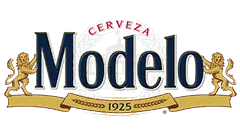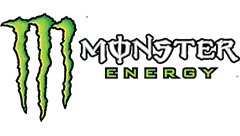University Southern California Trojans
USC Baseball National Champions
1948 NCAA CHAMPIONS

USC’s first national championship came in 1948 with co-head coaches Sam Barry and Rod Dedeaux leading the Trojans. At the second-ever College World Series in Kalamazoo, Mich., USC battled Yale in a best-of-three confrontation for the title. Troy won the first game, 3-1, ending the game with a spectacular triple play in the ninth.
The next day Yale sent its ace right-hander, Art Quinn, to the mound for game two. He posted an 8-3 victory over the Trojans to force a decisive game three.
In the final game, the hero for the Trojans was second baseman Art Mazmanian, who went 3-for-3 with a sacrifice and scored a run in the first inning, which gave USC a lead it never relinquished on the way to a 9-2 championship victory. Dick Bishop scattered 10 hits to go the distance and get the victory while adding two hits of his own. Third baseman Bill Lillie had two RBI on two hits, and center fielder Gordon Jones added two RBI. For Yale, first baseman and future President George Bush had a double in four at-bats in the final game.
The Trojans clinched the CIBA by a four-game margin, going 13-2 to win their third straight title. USC then advanced to the PCC Playoffs, where it swept Washington State in two games, 7-5 and 6-3. In the finale, USC clinched the title on a three-hitter by lefthander Tom Kipp, who had a no-hitter through seven innings.
After a three-game sweep at the NCAA Western Playoffs, which saw two wins over Baylor and one over Oklahoma A&M (now Oklahoma State), USC advanced to its first College World Series.
1958 NCAA CHAMPIONS

The next USC title came 10 years later when Troy went 5-1 at the 1958 CWS, losing only to Holy Cross in the opening game, 3-0. USC fought its way back through the losers’ bracket to claim the crown, making it only the second team in CWS history to accomplish that feat (Texas did it previously in 1950).
The Trojans rebounded from the loss to beat Arizona, 4-0; Colorado State, 12-1; and Holy Cross, 6-2.
USC then had to defeat Missouri twice to claim the championship. In the first game, with no score entering the ninth inning, the Trojans exploded for seven runs. With the support of Bill Thom’s three-hitter, USC defeated the Tigers, 7-0, forcing one final game.
Then, in one of the most exciting championship games in baseball history, USC beat Missouri, 8-7 in 12 innings, after trailing, 4-0. Third baseman Mike Blewett won the game for USC with a single to right field in the bottom of the 12th that sent outfielder Rex Johnston home from third with the winning run. Thom (the tournament MVP) pitched 4 2/3 scoreless relief innings to get credit for the win. USC first baseman Ken Guffey went 2-for-4 with two RBI.
By winning their eighth straight CIBA title (and their 12th in the past 13 years), the Trojans earned a berth in the PCC Playoffs, where they swept Oregon State in two games, then advanced to the District 8 finals, where they beat Portland twice to advance to Omaha
1961 NCAA CHAMPIONS

The 1961 championship game was exciting as well. It was also notable because USC became the first school with three national titles.
USC went 5-0 in the CWS, making it only the fifth team in 15 years of the NCAA Tournament to go undefeated. To start the tournament, the Trojans beat Texas, 8-6; Boston College, 10-3; and Oklahoma State, 4-2. In the win against Oklahoma State, Larry Hankammer set a CWS record by striking out 16 batters.
In a second meeting with Boston College, the Eagles took a 3-0 lead before the Trojans rallied with two runs in the seventh and one in the eighth to send the game into extra innings. In the 10th, back-to-back-to-back singles by third baseman Tom Satriano, rightfielder Art Ersepke and catcher Larry Himes gave USC a 4-3 victory, and sent the Trojans to the championship game.
After enduring a rain delay before the final, USC squeaked out a 1-0 victory over Oklahoma State to win the national championship. With no score and one out in the eighth inning, leftfielder Mike Gillespie (the future Trojan head coach) doubled to the left-center field fence. One out later, Ersepke drove home Gillespie with a single. Trojan pitcher Jim Withers improved his record to 12-1 with the shutout, in which he gave up only four hits and struck out 13.
Five Trojans earned All-CWS honors: Ersepke, Himes, Withers, Hankammer and first baseman Bill Ryan.
Prior to the CWS, the Trojans earned a 12-4 mark in the CIBA, which was good for their 11th consecutive first-place finish and their 15th in 16 years.
Troy took two out of three games from Fresno State to win the first round of the District 8 Playoffs before sweeping Washington State in two straight to claim the District 8 championship and a trip to the CWS.
1963 NCAA CHAMPIONS

The next NCAA title came in 1963 when USC lost its first CWS game, then had to win all of its remaining games to stay alive. Troy did just that and eventually defeated Arizona, 5-2, to take the title.
The Trojans opened the CWS with an 8-3 loss to Texas. But that defeat was followed with five straight victories, avoiding elimination and earning USC’s fourth championship.
The Trojans beat Holy Cross, 6-5, scoring all six runs in the seventh inning; Florida State, 4-3, assisted by a defense that threw out three runners at the plate; and Missouri, 12-3, eliminating the No. 1 team in the tournament.
USC then needed to beat Arizona twice. In the first contest, the Trojans scored five runs in the first inning en route to a 6-4 win. After a day off because of rain, USC took a 5-0 lead after five innings and held on for the 5-2 victory. Walt Peterson pitched a complete game and struck out nine while catcher Bud Hollowell and first baseman Gary Holman hit 400-foot homers.
Hollowell hit four home runs in the final four games to earn tournament MVP honors. The 1963 team was one of the youngest Trojan championship teams, with a starting lineup that included seven sophomores.
After losing the CIBA title to Santa Clara in 1962, which snapped USC’s 11-year winning streak, the Trojans earned their revenge by clinching the 1963 title on the field against the Broncos. USC went on to defeat Oregon State for the District 8 championship in three games.
1968 NCAA CHAMPIONS

If the mark of a good team is the ability to win close games, the 1968 USC team was very good. That team went undefeated in Omaha, though it won no CWS game by more than two runs and the team hit .221 for the series.
The road to the championship was filled with comebacks. The Trojans scored four in the seventh to break a 1-1 tie and beat BYU, 5-3; they scored three in the fourth and two in the fifth to defeat Oklahoma State, 6-5; and scored four in the seventh and one in the eighth to edge St. John’s, 7-6. Bob Vaughn, pitching for the first time in a month because of injury, tossed a six-hit shutout against North Carolina State in a 2-0 win, advancing the Trojans to the final.
The championship game against Southern Illinois required another comeback. USC trailed 2-0 in the third inning but tied the game at 2-2 in the fourth frame thanks to a two-run home run by first baseman Bill Seinsoth (the tournament MVP).
Southern Illinois scored a go-ahead run in the eighth inning. Trailing 3-2 in the bottom of the ninth, USC got two runners on base with two men out. Up came pinch-hitter Pat Kuehner, hitless to that point in the CWS. He laced a triple with two strikes on him to score the tying and winning runs in the 4-3 victory.
Brent Strom earned his second CWS victory in relief. For the series, Strom pitched 9 1/3 innings, giving up only one run and three hits while striking out 13.
After winning the Pac-8 title, USC took two of three games from Cal State Los Angeles to win the District 8 Playoffs and advance to the CWS.
1971 NCAA CHAMPIONS

The Trojans captured their second straight NCAA crown and third in the last four years in 1971, the 25th anniversary of the CWS. USC became only the second team in the history of the tournament to win back-to-back championships (Texas was the first in 1949-50).
As they had done in previous tournaments, USC had to overcome an early defeat. Following a 5-1 victory over Seton Hall, the Trojans suffered an 8-3 loss against Southern Illinois.
But the Trojans rebounded quickly with an 8-6 win over BYU and an 8-4 beating of Tulsa.
In a rematch with Tulsa, Troy avoided defeat as righthander Mark Sogge lifted himself out of trouble. With the bases loaded in the eighth inning, his pickoff started a double play, keeping the score tied at 2-2. Sogge also singled home the game-winning run in the ninth for a 3-2 victory.
In the championship game, second baseman Frank Alfano and catcher Craig Perkins hit back-to-back homers over the left-field fence in the seventh inning of a 7-2 win over Southern Illinois, avenging the earlier loss to the Salukis. With the bases loaded in the top of the ninth, righthander Steve Busby struck out the final batter to cap his complete-game victory.
Outfielder Fred Lynn hit .467 (7-for-15) in the CWS with a home run.
USC went undefeated (17-0) in the Pac-8 season, making the Trojans the first-ever team to record an unbeaten conference season. The Trojan pitchers also set a conference record by tossing 38 1/3 consecutive scoreless innings.
The Trojans went 3-1 to win the Pac-8 Playoffs, then moved on to the District 8 Playoffs at Santa Clara. The host Broncos won the first game, but USC won the next two.
1972 NCAA CHAMPIONS

USC won the 1972 CWS — becoming the first school to win three straight baseball titles —despite hitting only .198 for the series. But Troy had dominant pitching, which came up big in one close game after another. All five of USC’s victories were by one or two runs.
The Trojans fought back from the loser’s bracket for the third year in a row. USC opened with victories over Mississippi, 8-6, and Connecticut, 5-4, in 11 innings, but lost the next game to Arizona State, 3-0.
In a 10-inning thriller against Texas, first baseman Daryl Arenstein, after breaking his bat on a 2-2 pitch, borrowed one from his roommate, Jeff Port, and delivered a gamewinning single to score Tim Steele for a 4-3 win.
USC then had to beat Arizona State twice for the title. First, Randy Scarbery went the distance in a 3-1 victory. The Trojans scored two runs in the second inning, ending a 33 1/3-inning scoreless streak by ASU pitchers.
Then, in the championship, Russ McQueen’s heroics in relief helped preserve a 1-0 shutout of the Sun Devils for the title. He entered the game with the bases loaded and nobody out in the fifth inning, got out of the jam unscathed and gave up only one hit in five innings of work. Steele scored the game’s only run on a wild pitch in the third inning and had two hits, including a double.
McQueen, the tournament MVP, pitched 14 innings without giving up a run in the CWS and earned three wins and a save. USC’s strong pitching was a surprise because Troy had lost three pitchers to the pros before the season.
Prior to the CWS, the Trojans defeated Washington State twice for the Pac-8 title, then beat UC Santa Barbara twice in the District 8 Playoffs.
1973 NCAA CHAMPIONS

In 1973, USC again defeated Arizona State in the title game, this time behind an offense that featured outfielder Fred Lynn, shortstop Roy Smalley and third baseman Rich Dauer. It was USC‘s fourth consecutive championship.
Troy went undefeated en route to the championship (only the second time a CWS winner had been unbeaten since 1961). The first three victories were against Harvard, 4-1; Texas, 4-1; and Arizona State, 3-1.
The next game, and the highlight of the CWS, was USC’s incredible 8-7 victory over Minnesota — one of the greatest comebacks in NCAA history in any sport. Going into the bottom of the ninth, the Trojans had been held to just one hit and were being shut out, 7-0, by Gopher pitcher and longtime major leaguer Dave Winfield. But Troy sent 11 men to the plate, coming up with eight singles, a sacrifice fly and a stolen base (as well as three Minnesota errors) to score eight runs and win the game. Pinch-hitter Ken Huizenga led off the ninth with a single and then his sacrifice fly tied the game at seven runs apiece. USC won it on outfielder Creighton Tevlin’s RBI single.
That vaulted the Trojans into the championship game, where they beat topranked ASU, 4-3. USC took a 4-0 lead, then held on as lefthander Jeff Reinke, who was on a basketball scholarship at USC, retired the final 11 batters. Huizenga scored a run, had two RBI and made a diving catch to open the ninth inning for the Trojans.
Troy swept Washington State in two games for the second straight year to win its fourth consecutive Pac-8 championship, then defeated Loyola and Cal State Los Angeles in four straight games for its fourth consecutive District 8 title.
1974 NCAA CHAMPIONS

The last of USC’s unprecedented five straight NCAA titles came in 1974 and was led by infielder Rich Dauer and designated hitter Steve Kemp, who helped the 1974 Trojans to the champion. No other team, before or since, has won more than two titles in a row.
With a win over Texas in the opening game of the tournament, 9-2, and a game two victory over Southern Illinois, 5-3, the Trojans enjoyed a 10-game CWS winning streak before a 7-3 loss to Miami (Fla.). But the Trojans made their way to the title game for the fifth straight year by defeating Texas, 5-3, and Southern Illinois, 7-2.
In the final, USC beat Miami (Fla.), 7-3, avenging the earlier loss. Trojan pitchers John Racanelli and George Milke combined to strike out 10 Hurricanes (and allowed zero earned runs) in the clincher while second baseman Rob Adolph, a backup to quarterback Pat Haden on the football team, hit a two-run home run.
Milke was named the CWS Most Outstanding Player after earning three victories.
To get to the CWS, the Trojans beat Oregon in the Pac-8 Championships and Cal State Los Angeles and Pepperdine in the District 8 Playoffs.
Dauer set an NCAA record in the opening game of the CWS with a second-inning single. It was his 102nd hit of the season, breaking Arizona State’s Alan Bannister’s record of 101 set in 1972. Dauer ended the season with a total of 108 hits and two other NCAA records: total bases (181) and RBI (92).
Kemp was fifth in the nation in batting average with an awesome .435, still the USC single-season record.
On March 30, 1974, in the inaugural game at Dedeaux Field, Jeff McQueen tossed a 7-0 no-hitter over California.
1978 NCAA CHAMPIONS

USC’s 11th title came in 1978, as the Trojans went 54-9 overall (the best record in the country and still the school single-season record for wins) after starting out the season with a 7-4 record. The Trojans finished the season with a 10-game win streak and went 27-2 in their last 29 games.
At the CWS, the Trojans easily won their first three games by beating Miami (Fla.), 9-3; Michigan, 11-3; and Arizona State, 5-2.
It required a late-inning comeback to hold off North Carolina in a 3-2 victory. Down 2-0 heading into the eighth inning, the Trojans scored twice in the top of the eighth and got the game-winner in the top of the ninth as centerfielder John Wells’ sacrifice fly scored second baseman Larry Fobbs.
Once again the Trojans beat Arizona State in the CWS final, 10-3, as first baseman Dave Hostetler hit a third-inning homer that proved to be the game-winner. Hostetler and outfielder Tim Tolman each had three hits for USC. The Trojans took a 10-0 lead and Bill Bordley didn’t allow a run for the first seven innings.
Rod Boxberger was named tournament MVP.
Previously, USC’s two-game sweep of Washington State in the Pac-8 Championships extended USC’s conference tournament winning streak to 13 games. The Trojans then went 3-0 in the NCAA West Regional at Dedeaux Field with two wins over Arizona and a victory over Cal State Fullerton, all by one-run margins.
Bordley (12-2) and Boxberger (12-1) were two of four Trojans — including Brian Hayes (11-2) and Ernie Mauritson (11-0) — with at least 11 wins, making NCAA history. Bordley started the 1978 season 6-0, giving him wins in 20 straight decisions. The pitching staff registered a 2.63 ERA for the season.
1998 NCAA CHAMPIONS

The 12th and most recent title came in 1998, as the Trojans put together an amazing run at the College World Series. It was the 50th anniversary of USC’s first-ever baseball crown.
For the fourth time, USC was able to overcome an opening-round loss (12-10 to two-time defending champion LSU) to claim the title.
USC needed four wins in the next five days to reach the final. First, USC beat Florida, 12- 10, in 11 innings. Rik Currier then shut down Mississppi State, 7-1, as he struck out 12 in eight innings.
The Trojans then had to beat LSU twice in two days, and righthanders Seth Etherton and Mike Penney were up to the task, as they pitched USC to 5-4 and 7-3 wins, respectively.
USC faced a familiar foe in the title game: Arizona State. For the fourth time, the two teams met in the final, and for the fourth time, the Trojans came away victorious in a 21-14 slugfest.
Robb Gorr opened the first with a threerun shot to left and the Trojans opened an 8-0 lead in the second on a three-run homer by second baseman Wes Rachels and Gorr's second homer of the game with a solo shot. The Sun Devils, though, answered with five in the bottom of the inning, including a grand slam by shortstop Michael Collins. USC held off Arizona State throughout the game and led, 11-8, in the seventh before one of the most dramatic moments in CWS history.
With the bases loaded and two outs, Head Coach Mike Gillespie called for a triple steal as Morgan Ensberg stole home. Rachels followed with a two-run single to give the Trojans a sixrun lead. Arizona State scored five runs in the seventh, but the Trojans put the game away in the ninth on a grand slam over the center-field wall by designated hitter Jason Lane in the ninth.
Lane set CWS records for hits (15) and total bases (31). Wes Rachels, the CWS Most Outstanding Player, went 5-for-7 with a championship-game record seven RBI. Jack Krawczyk pitched the final 1 2/3 innings to earn a save and set NCAA single-season and career records.
"I was proud of our guys," said Gillespie. "We couldn't allow ourselves a week ago to think that we would be playing for the national championship. This achievement for me goes beyond my ability to describe it."
At the NCAA East Regional, the Trojans also had to come back from an early loss, but they won their final three games in a two-day period.













